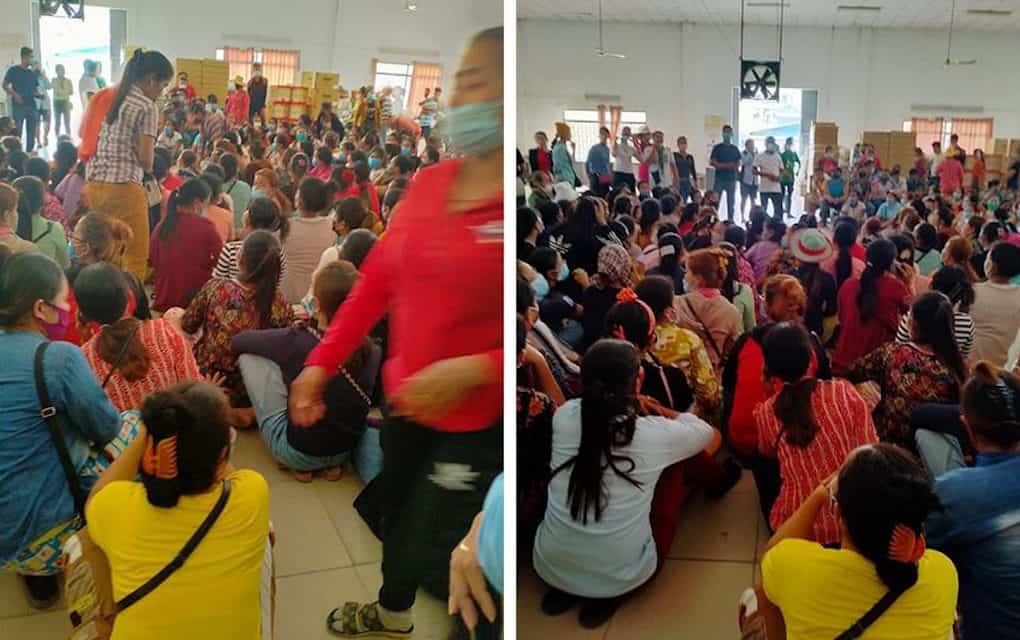Five Actions the Global South is Taking to Confront the Coronavirus
Across the globe, the Coronavirus is creating health an economic crises which are hitting all countries and all peoples.
As the pandemic spreads, workers and communities in the Global South are taking action to not only stop the spread, but also to prepare for a post-pandemic world where the rights to healthcare, education, and good jobs are strengthened.
Take a look at these five actions that communities in the Global South are taking to confront the crisis!
Strike action to protect health and safety
Reports of workers taking proactive action to protect their health and safety are coming in from across the Global South.
In Cambodia, garment workers are striking to prevent their employer from using the Coronavirus as an excuse for wage theft.
In Zimbabwe, health workers are striking to ensure they have access to protective equipment and clean water in hospitals. They are demanding a risk-allowance, and extra training to help stop the spread of the virus.
And in Papua New Guinea, nurses are striking to protest the lack of equipment and safety measures to protect themselves against the virus.

Workers at Canteran Apparel (Cambodia) Co. Ltd. protest over unpaid wages at the Phnom Penh factory on March 25, 2020. Photo Credit: VOD News Cambodia
Calling for system-change
The health and economic crises are exposing the failures of the neo-liberal system which wrought enormous damage to health, education, and wages of communities in the Global South.
Already, trade unions, social movements, and civil society organisations across the Global South are demanding a system that delivers secure employment, quality public healthcare, and living wages.
In South Africa, the Inyanda National Land Movement South Africa, asks: “How and what will we do differently so that when this crisis is over we will construct a different society?”
It is time to start analysing how and what got us into this situation: unbridled capitalist accumulation, high levels of consumption, extreme inequality, our dependency and consumption of fossil fuels, industrial agriculture, and the destruction of biodiversity and our natural environment. How and what will we do differently so that when this crisis is over we will construct a different society?
Boosting production of life-saving goods
In factories and workplaces across the Global South, workers are taking the initiative to boost the production of socially-useful goods, such as face-masks and life-saving protective equipment.
In Tunisia, for example, hundreds of women workers have self-isolated in their factory to boost the production of face masks for the Tunisian people.
Keeping an eye on the authoritarians
In authoritarian countries, some governments are already taking advantage of the crisis to push through laws which give extraordinary powers to political leaders.
Our partner unions in the Philippines, the Kilusang Mayo Uno union federation, and SENTRO union federation, are calling out the Duterte regime for its power grab, which gives President Duterte more powers than ever under new national emergency legislation.
Strong and early action to stop the spread
Because of their large populations, dense cities, and under-resourced healthcare systems, many countries in the Global South are particularly vulnerable to pandemics.
That’s why countries like Timor Leste and Papua New Guinea are taking strong action to stop the virus from getting a foothold in those countries, where a number of cases have been recorded. Other Pacific Island nations like the Solomon Islands, Vanuatu, Kiribati, and Tonga have introduced restrictions before the virus has appeared.
https://www.facebook.com/kilusangmayouno/posts/2585589711715277
Solidarity in Times of Crisis
Right now Union Aid Abroad – APHEDA is working with our partner organisations to assess what is needed at this critical time. Because already, communities across the Global South are facing the impact of the health and economic crisis. If you are able to make a contribution to Union Aid Abroad – APHEDA, you will be supporting our partner organisations as they mobilise to stop the spread and secure their human and labour rights.
